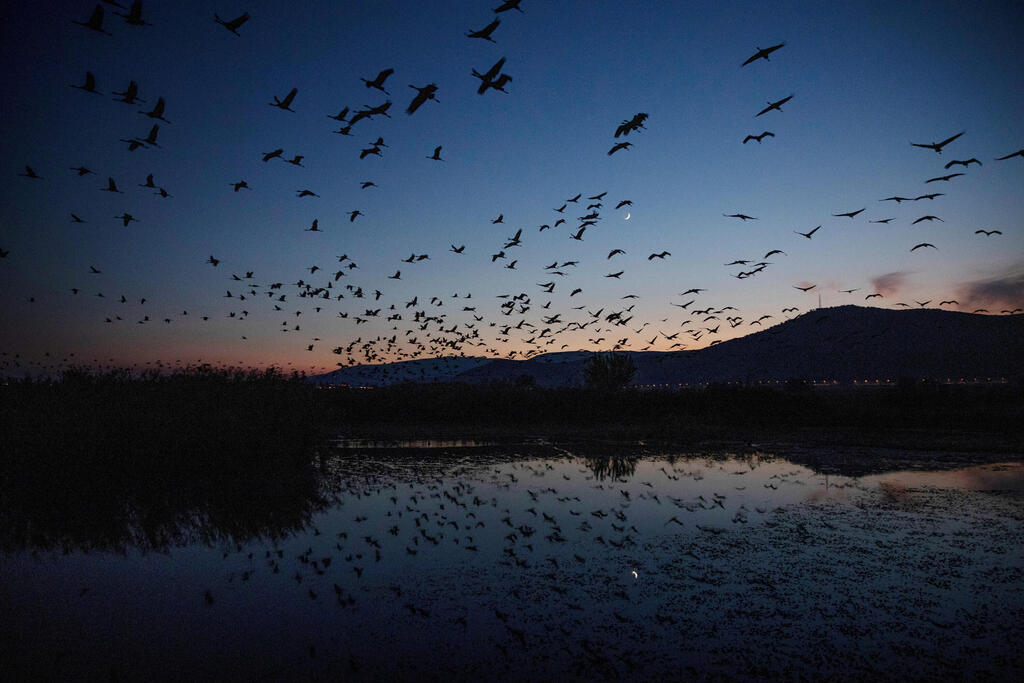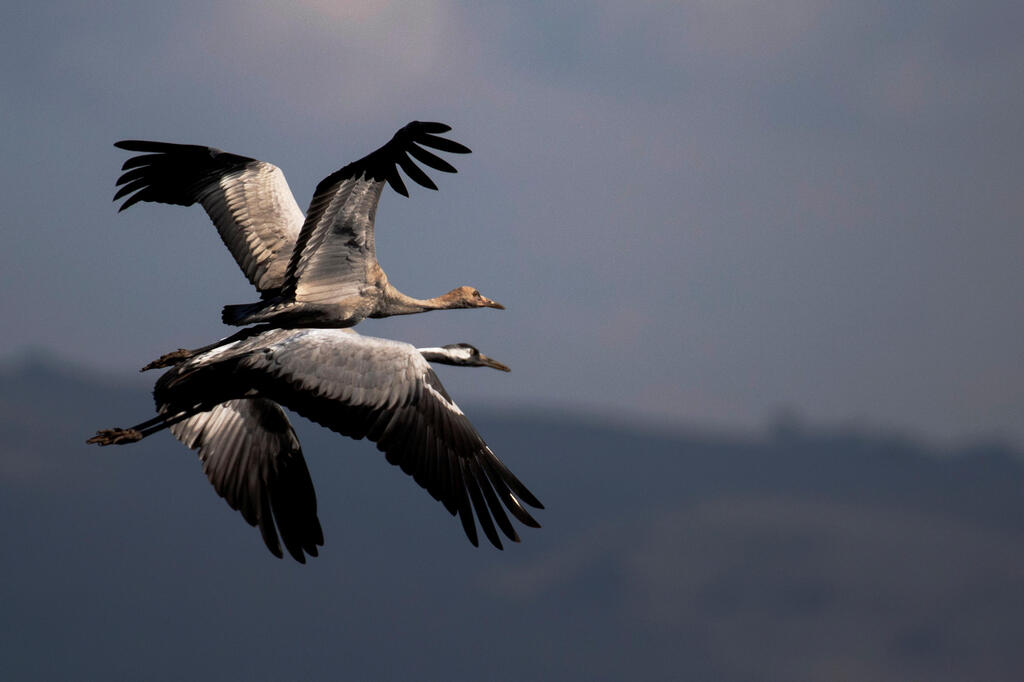The sun is setting on the lake and thousands of cranes perform a mating dance, bobbing their black and white heads while flapping large grey wings and hopping on long legs.
Like every winter, the red-crowned Eurasian birds are back on Israel's Hula Lake - some for a stop-over en route from Russia, Finland and Estonia to Ethiopia's Lake Tana, and others here for the entire cold season.
2 View gallery


Cranes fly above a lake during the migration season at Hula Nature Reserve, in northern Israel
(Photo: Reuters)
This year, however, some of the 100,000 cranes flew in a little late, with global warming a possible reason for the delay.
"The first birds arrive at the end of September. This year it was two weeks late. One of the reasons, we think, is because September was very warm and they had no reason to move to the south," said Inbar Shlomit Rubin, content and instructors' manager at the Hula nature reserve.
Bird migration is like nature's clock, said Yaron Charka, chief ornithologist for the Jewish National Fund, the organization that runs the site which sees the migration of half a billion birds a year.
"You see this clock ticking every year and it's very similar every year. Seasons are coming, birds are coming at the right time and you also see differences between years," said Charka.
"We can't be sure what the reason is for the differences between the years. Mainly it should be climate change," he said.
With Israel beginning to emerge from its second national coronavirus lockdown last month, nature-lovers are also flocking to the park.
"A crazy amount of people just wanting to go out, to be in nature, to see the birds, to breath a little. It's healing," Rubin said.


